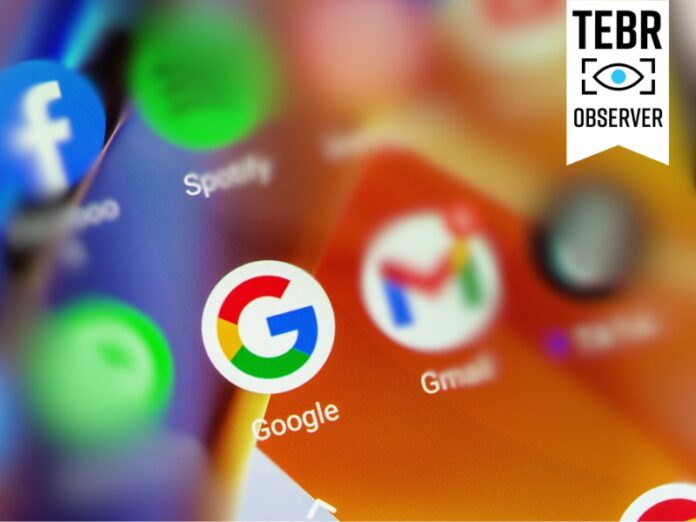By Emil Bjerg, journalist and editor
In the first successful antitrust case since 2000, Google has been found guilty of monopoly formations. How will the ruling affect Big Tech?
In a landmark ruling, the U.S. District Court has found Google guilty of monopolistic practices, marking the first successful antitrust case against a major tech company since 2000. This ruling stems from a lawsuit filed by the U.S. Department of Justice (DOJ) in 2020, which accused Google of unlawfully maintaining its dominance in the search market through exclusive agreements with Apple, Samsung, and Mozilla. These deals effectively made Google the default search engine on various devices and browsers and, according to the DOJ, limited competition and consumer choice.
The DOJ, led by Attorney General Merrick Garland, argued that Google’s monopolistic practices harm consumers by stifling competition and innovation in the online search market. They argued that Google’s exclusive agreements with major device manufacturers and browsers effectively lock out potential competitors.
Google countered that they are not primarily leaders in search because they have bought customers, but because they have a superior product.
A drastic measure being considered is breaking up Google into separate entities. This could involve breaking off certain parts of Google, such as its Chrome web browser or the Android operating system. Such a measure would break up the integrated ecosystem that Google has built, which critics argue reinforces its monopoly power. Another potential measure is requiring Google to share its data with competitors in search.
Google has already appealed the ruling, so we can expect to wait several years to know the legal outcomes. But the case could have short term consequences for Google: “As we saw with Microsoft in the late 90s and early 2000s, even if you don’t actually get a breakup, it can divert resources, talent, money, capital towards fighting these antitrust battles and make a company miss out on innovation. That led to a lost decade at Microsoft” says tech analyst Deidre Bosa.
How Might This Impact Big Tech?
To the DOJ, the ruling is their first successful antitrust case in decades, marking a comeback to the
American antitrust movement. The Google ruling is significant because “it applies to big tech platforms the notion that while you can be dominant, you can’t abuse that dominance,” Bill Baer, a former antitrust official in the Justice Department, said to The New York Times.
The Google antitrust ruling has likely been followed by other Big Tech companies, which are also closely watched for potential monopolies.
The Federal Trade Commision (FTC), which, like the DOJ, has the authority to enforce federal antitrust laws in the United States, has already filed a lawsuit against Amazon for potentially favoring its own products over independent sellers on its webshop. Meta is facing FTC scrutiny over its acquisitions of WhatsApp and Instagram. In March, the DOJ sued Apple for allegedly monopolizing the smartphone market by impeding the development of competing technologies. At the same time, both Microsoft and NVIDIA are facing scrutiny over potential monopoly formations.
While Google is the first company to receive an antitrust ruling in 24 years, other Big Tech companies may soon follow the same trajectory. According to Rebecca Haw Allensworth, a law professor specializing in antitrust, the Google ruling is “a predictor of what other courts might do. You can also expect other judges to read this opinion and be influenced by it,” Allensworth recently said to The New York Times. Just like the decade-old Microsoft ruling set a precedent for the Google case—Microsoft was referenced on 104 pages in the Google ruling.
Are Antitrust Cases Paving the Way for Innovation?
From the perspective of regulators, antitrust cases are seen as a tool to encourage competition, because monopolies tend to stifle competition. In the Google case, it was argued that start-ups and investors could be discouraged from entering the search engine market due to the overwhelming presence of Google, which not only controls a vast majority of the market share, but also has access to an overwhelming amount of data points – data that allows Google to continually refine its algorithms and improve user experience, making it even more challenging for new entrants to gain traction.
The presence of monopolies can also lead to complacency among dominant firms, reducing their motivation to innovate. Some argue that this has already happened at Google, with tech critics arguing that its search engine has declined in recent years.
The ruling reflects the growing influence of the antitrust movement. The recent iteration of the antitrust movement is built on the 19th-century Sherman Antitrust Act, making it “illegal for a monopoly to engage in corporate conduct to thwart competition,” as The New York Times writes.
The Sherman Antitrust Act has served as inspiration for the development of competition law in the European Union under which the EU has penalized Google and Apple, while investigating Meta and Microsoft. The Google ruling marks an American antitrust comeback, essentially changing the playing eld for Big Tech companies.
For now, Google has appealed the ruling. Its appeal will be one of many cases to follow in the coming years that could potentially lead to the breakup of several Big Tech companies. While the legal outcomes remain to be seen, it is clear that antitrust regulators have become powerful actors in shaping the future of Big Tech.



































